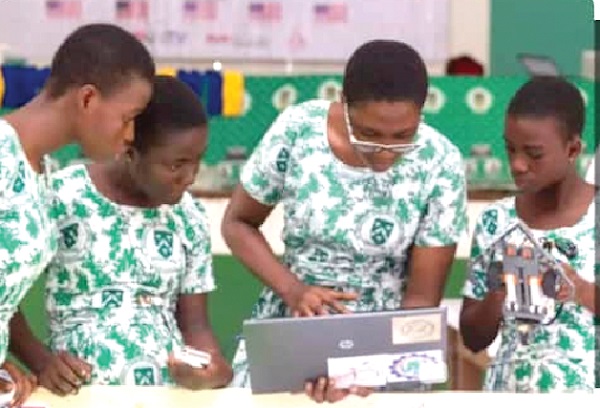
Establish all-inclusive environment for women, girls development—CHRAJ
The Commission on Human Rights and Administrative Justice (CHRAJ), in commemoration of this year’s International Women’s Day (IWD), has called for sustained effort and committed leadership in establishing an all-inclusive environment for the development of women and girls all over the world.
According to the commission, it was regrettable that women continued to face challenges of gender inequality that prevented them from achieving their full potential.
This year’s International Women's Day is celebrated on the theme, ‘‘DigitALL: Innovation and Technology for Gender Equality’’.
The focus is to explore how digital inequality impacts the social positioning of women in society while emphasising the need to expedite the implementation of the 2030 Agenda for Sustainable Development, particularly Goal five, which seeks to achieve gender equality and empower all women and girls.
In a release signed by the Commissioner, Joseph Whittal, to mark the day, it said the gendered dimension of inequality in the society cut across all spheres: economic development; education; access to health care; income; vulnerability to violence and even political representation.
Inequalities
These inequalities the commission said were fuelled by some cultural and social practices, high levels of illiteracy and a general lack of awareness.
The Worldwide web or Internet, according to the commission, was an essential tool that brought different cultures closer to more people, making it easier and more accessible, saying it also nurtured the rise of new forms of expression for art and the spread of knowledge.
It said there had been a large emergence of the use of technology within sub-Saharan Africa, especially in Ghana, and that, it said, was evidenced by schools, institutions, individuals and businesses deploying and using technology in their daily operations.
It added that although there was increased use of technology within the country, there was still a huge gender disparity, saying the GSS, for instance, recorded that 17 per cent of the Ghanaian population aged 12 years and older did not own any functional ICT device; and the proportion was higher among females, which was 19.3 per cent than males 14.1 per cent and in rural 26.6 per cent than in urban 9.8 per cent areas.
Additionally, it said 29 per cent of Ghanaian women used the internet in 2020 compared to 20 per cent in 2016, which was significant progress towards the closing of the gender gap in accessing the internet.
Harassment
It added that women and girls often experienced online abuse centred around harassment, hate speech, cyberstalking and non-consensual distribution of photos.
It said although Ghana had cybersecurity legislation and a Cyber Security Authority (CSA) with a mandate to regulate cybersecurity activities, including providing technical support for law enforcement agencies to prosecute cyber offenders and promote the protection of children online, these measures appeared inadequate to protect women’s rights online.
Accordingly, the commission urged the government and its agencies, especially the Ministry of Communications and Digitalisation (MoC&D) and its agencies, to intensify public education and awareness of the responsible use of technology and the internet and implement innovative policies meant to utilise the internet to reduce gender inequality.
These relevant agencies, it said, should further mount surveillance to arrest and prosecute perpetrators of online bullying of women to serve as a deterrent to others.
As we observe this day, the commission calls on the government and its relevant agencies as a matter of priority to design and/or implement innovative policies to improve access to technology by women and girls in the short through the medium to the long term.
